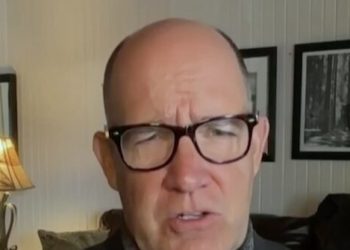Although it has long since entered the pantheon of American rhetoric as one of our nation’s great orations, there was a time, however brief, when the Gettysburg Address had its critics.
The president’s funeral sermon, an unnamed editorialist for The Chicago Times wrote, “was a perversion of history so flagrant that the most extended charity cannot regard it as otherwise than willful.” The Gettysburg Address is famously succinct, less a speech — that honor went to the accomplished orator Edward Everett, whose two-hour disquisition was the main event — than a short set of remarks meant simply to commemorate the occasion.
What, then, was offensive to this irate commentator? The problem, he explained, was the premise.
“Four score and seven years ago our fathers brought forth upon this continent a new nation, conceived in liberty, and dedicated to the proposition that all men are created equal,” said President Lincoln. This, the editorialist wrote, was nonsense. Does the Constitution, he asked, quoting those parts that allude to slavery, “dedicate the nation ‘to the proposition that all men are created equal?’” No, he said, and moreover, “Mr. Lincoln occupies his present position by virtue of this constitution, and is sworn to the maintenance and enforcement of these provisions.”
Far from dying to consecrate a new birth of freedom, he wrote, “It was to uphold this constitution, and the Union created by it, that our soldiers gave their lives at Gettysburg.” Lincoln was wrong — very wrong. “How dared he, then, standing on their graves, misstate the cause for which they died, and libel the statesmen who founded the government? They were men possessing too much self-respect to declare that negroes were their equals, or were entitled to equal privileges.”
Abraham Lincoln imagined a nation dedicated to the principles of the Declaration of Independence and the aims of the founders as he understood them. His critics, from Stephen Douglas to Roger Taney to the leaders of the Confederate rebellion, said no — ours was not a society of equals but one of rigid, permanent hierarchies. Ultimately, this contest of national identity was settled by force of arms. Lincoln’s vision, backed by what was, at the time, one of the largest and most diverse armies ever assembled on the North American continent, won the day. And his allies, charged after his martyrdom with the great work of reconstruction, wrote this vision into the Constitution with three amendments that aimed to realize the fullness of the Declaration.
To a great extent, then, we live in Lincoln’s America as much as anyone else’s. Which makes it supremely ironic that the project of Lincoln’s partisan political descendants — the project of the modern Republican Party — is the destruction of his republic of equals in favor of a so-called homeland for a select few.
Vice President JD Vance is, as I’ve discussed previously, a leading light of this effort. But he is not the only Republican to carry the standard. Last week, at an annual conference for National Conservativism — the illiberal right’s term of choice for its movement — Senator Eric Schmitt of Missouri gave a speech that, in its rejection of the creedal vision of the American republic and in its embrace of an exclusionary racial nationalism, went even further than Vance has in his public statements.
“For decades, the mainstream consensus on the left and the right alike seemed to be that America itself was just an ‘idea’ — a vehicle for global liberalism,” Schmitt said. “We were told that the entire meaning of America boiled down to a few lines in a poem on the Statue of Liberty and five words about equality in the Declaration of Independence. Any other aspect of American identity was deemed to be illegitimate and immoral, poisoned by the evils of our ancestors.”
We should pause, here, to reflect on the radicalism of Schmitt’s dismissive contempt for the universalist aspirations of the American political tradition. Those “five words about equality” — “We hold these truths to be self-evident, that all men are created equal” — are among the most important in human history. They represent a unique moment in the story of the world, the merging of a powerful notion of universal equality with a revolutionary claim about the sources of political authority.
“For the Declaration of Independence was the first case in human history in which a single people made a national revolution on the assumption that its particular principles were, simultaneously, the universal principles which civilized men everywhere would recognize,” the historian and political philosopher Harry Jaffa wrote in what now reads as a rebuke of those who, in the present day, carry the imprimatur of his scholarly home, the Claremont Institute. “The declaration assumed,” Jaffa went on to say, “that its potential, if not its actual addresses, embraced the entire family of man.”
Put a little differently, there is a reason that those “five words” have been, since the day they were announced to the people of the United States, a clarion call for freedom both here and around the world. The Declaration’s promise of equality would become, in short order, a powerful touchstone for the great moral and political crusades of our nation’s history.
“We hold these truths to be self-evident,” declared the women at the Seneca Falls Convention of 1848, “that all men and women are created equal.”
“The Declaration of Independence is the ringbolt to the chain of your nation’s destiny,” thundered Frederick Douglass in 1852. “The principles contained in that instrument are saving principles.”
“The Declaration of Independence,” Eugene Debs wrote in 1894, “recited the cause of the great strike for liberty.”
“Never before in the history of the world has a sociopolitical document expressed in such profound, eloquent and unequivocal language the dignity and the worth of human personality,” the Rev. Dr. Martin Luther King Jr. said of the Declaration to congregants at his Ebenezer Baptist Church in Atlanta in 1965. “The American dream reminds us, and we should think about it anew on this Independence Day, that every man is an heir of the legacy of dignity and worth.”
Schmitt rejects this inheritance. His America is not an idea; it is blood and soil, “a nation and a people, with its own distinct history and heritage and interests.”
Any casual reader of American history will see the issue here: Of course the United States has a distinct history, and it is a history of immigration, migration and the amalgamation of many cultures and traditions into something wholly different than its constituent parts. The American heritage, in other words, is that of a Creole nation, a conglomeration of Native, European, African and Asian histories and influences — a mélange found in almost everything we produce. “American culture, even in its most rigidly segregated precincts, is patently and irrevocably composite,” wrote the novelist and social critic Albert Murray. “It is, regardless of all the hysterical protestations of those who would have it otherwise, incontestably mulatto.”
What is true for our culture and identity is also true for our “interests,” which are those of a fundamentally cosmopolitan nation, shaped at each state by the movements of people from around the world. Schmitt, however, has a different idea of who we are:
We Americans are the sons and daughters of the Christian pilgrims that poured out from Europe’s shores to baptize a new world in their ancient faith. Our ancestors were driven here by destiny, possessed by urgent and fiery conviction, by burning belief, devoted to their cause and their God.
This claim comes after Schmitt identifies “Americans” with “the pioneers striking out from Missouri for the wild and dangerous frontier” and the “outnumbered Kentucky settlers repelling wave after wave of Indian war band attacks from behind their stockade walls.”
Pilgrims, pioneers, settlers — Schmitt has a clear image of the American in mind and it is exclusive of much of the country, including people who can trace their origins to the earliest days of British North America. And Schmitt’s Americans, he asserts, “believed they were forging a nation — a homeland for themselves and their descendants.” America, he says, “belongs to us. It is our birthright, our heritage, our destiny.” This “birthright,” however, is not the jus soli enshrined in the 14th Amendment but the jus sanguinis of Dred Scott.
Schmitt, like Vance before him, presents this vision of the United States as a novel rebuke to liberal ideology. But truth be told, theirs is the stale orthodoxy of those blinkered devotees of human aristocracy, who reject the faith of the founders — and the work of those who made it real — to worship at the altar of hierarchy and repression.
You would have heard much the same if you were around for George Wallace’s 1963 Inaugural Address as governor of Alabama, in which he sang paeans to the “great Anglo-Saxon Southland”; or if 40 years earlier you attended a lecture by Lothrop Stoddard, author of “The Rising Tide of Color Against White World-Supremacy” and “The Revolt Against Civilization: The Menace of the Under-man”; or if 60 years before that you had joined the pro-slavery ideologue George Fitzhugh for an evening in his study, where he would explain that “the Anglo-Saxons of America are the only people in the world fitted for freedom.”
Schmitt, like his fellow travelers past and present, wants none other than to turn the page on those “five words about equality.” Which is to say that both he and the president to whom he has pledged his allegiance want to turn the page on a nation dedicated to a “new birth of freedom.”
In the Gettysburg Address, Lincoln asked his audience to recommit itself to the “great task” — “the unfinished work” — of preserving a nation “conceived in liberty and dedicated to the proposition that all men are created equal.” It seems that Eric Schmitt, like many other national conservatives, believes that this work has already gone too far.
The Times is committed to publishing a diversity of letters to the editor. We’d like to hear what you think about this or any of our articles. Here are some tips. And here’s our email: [email protected].
Follow the New York Times Opinion section on Facebook, Instagram, TikTok, Bluesky, WhatsApp and Threads.
Jamelle Bouie became a New York Times Opinion columnist in 2019. Before that he was the chief political correspondent for Slate magazine. He is based in Charlottesville, Va.
The post Five Words From the Declaration of Independence National Conservatives Don’t Like appeared first on New York Times.




